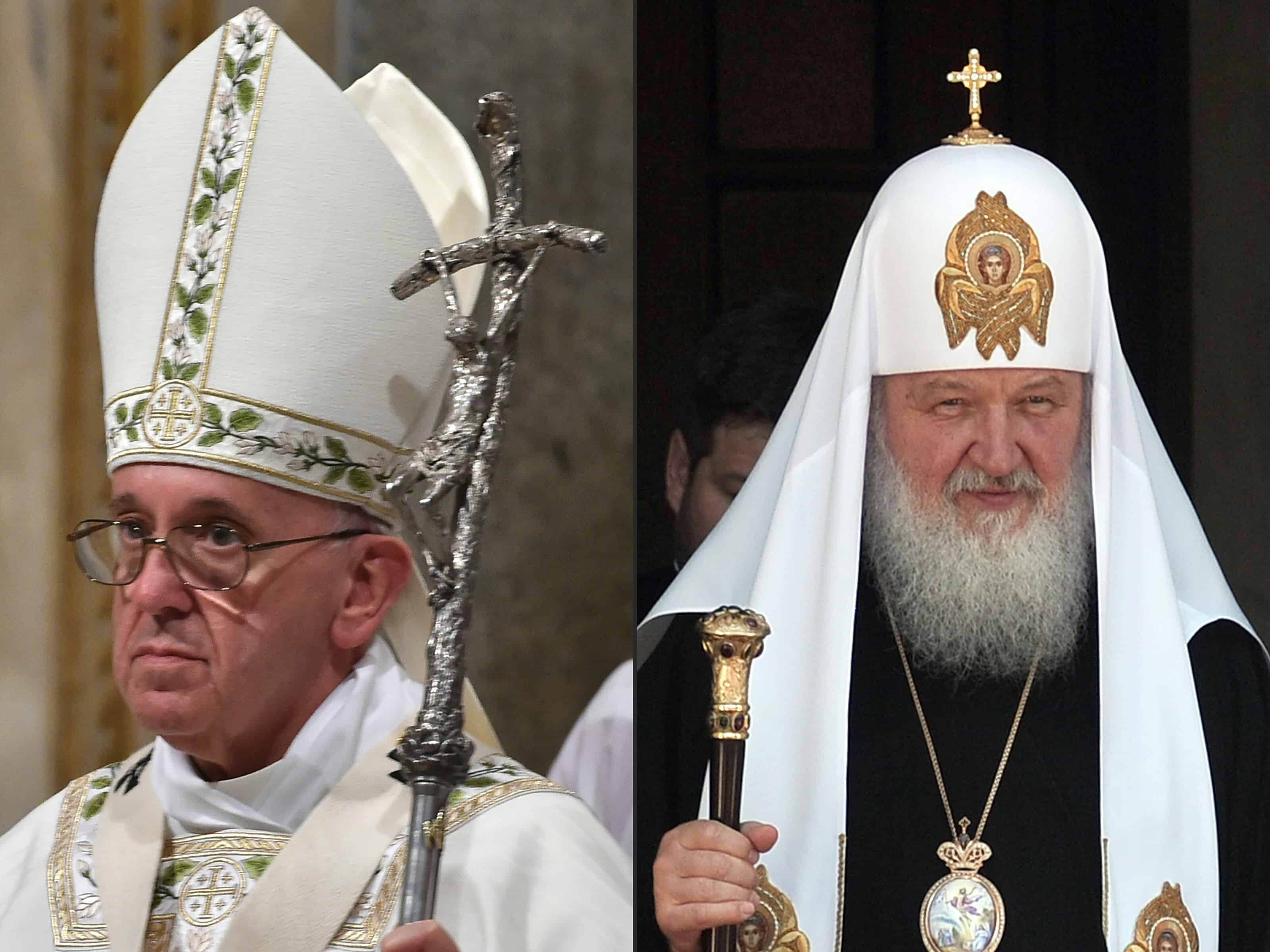The meeting, the first ever between a sitting pope and Russian patriarch, will take place at Jose Martí International Airport, where the two will sign a joint declaration. Pope Francis will fly to Cuba before traveling on to Mexico for a six-day tour of the country.
“This meeting of the Primates of the Catholic Church and the Russian Orthodox Church, after a long preparation, will be the first in history and will mark an important stage in relations between the two Churches,” said a joint press release.
“The Holy See and the Moscow Patriarchate hope that it will also be a sign of hope for all people of good will. They invite all Christians to pray fervently for God to bless this meeting, that it may bear good fruits,” it added.
Patriarch Kirill is scheduled to arrive next Thursday in Havana for an 11-day tour of South America, which will also include stops in Paraguay, Chile, and Rio de Janeiro and São Paulo in Brazil.
The meeting would culminate decades of overtures seeking to bridge suspicions and rifts that span both historical and contemporary grievances, which have so far blocked any papal visit to Russia.
Among the obstacles that have complicated deeper dialogue are long-held claims by Moscow that the Roman Catholics have been seeking to expand Rome-affiliated churches in traditional Christian Orthodox areas.
Eastern Rite churches — which retain Orthodox traditions but are loyal to the Vatican — have been one of the thorniest issues blocking attempts to heal the divisions between the world’s Roman Catholics and more than 200 million Orthodox.
Orthodox Christians are spread among various churches and patriarches. But the Russian church is the largest and carries major influence among the Orthodox heirarchy.
Although Catholics and Orthodox remain estranged on other issues — including married clergy and the centralized power of the Vatican — there have been significant moves over the generations toward closer interactions and understanding.
The first major breakthrough came in 1964 when Pope Paul VI met in Jerusalem with Patriarch Athenagoras in the first encounter between a pope and Orthodox patriarch in more than 500 years. The meeting led to the lifting of mutual excommunication edicts and the Catholic-Orthodox Joint Declaration of 1965 that called for greater harmony among the churches.
An apostolic letter by John Paul II in 1995 encouraged unity between the two branches of Christianity and opened the way for a historic visit to Rome by Bartholomew I, who is based in Istanbul and is considered the “first among equals” of the Orthodox patriarchs.
In 2001, Pope John Paul II made a landmark trip to mostly Orthodox Greece and issued an apology for the ravages of the Fourth Crusade, which in the early 13th century sacked Constantinople, now Istanbul, the seat of the Eastern church.
In 2006, Benedict XVI was hosted by the Bartholomew, known as the ecumenical patriarchate, in Istanbul in a visit that brought protests from some archconservative Orthodox but generally opened room for more exchanges.
The Cuba encounter also appears to show evolving views by the Kremlin toward the Vatican under Francis, the first pope from Latin America, who has been critical of Western-style capitalism and other social ills.
The Vatican has been careful with its comments against Russia’s actions in Ukraine, including its annexation of Ukraine in 2014, but has indirectly criticized Moscow and others over failures to end Syria’s civil war. Russia is a key backer of Syria’s government and last year began airstrikes to aid Syrian forces.
Previous pontiffs, meanwhile, have been appraised with a possibly harsher eye by the Kremlin. The Polish-born Pope John Paul II directly challenged the former Soviet Union during his early years in his papacy. His successor, Benedict, was often seen through the prism of his former role as the Vatican’s chief overseer of Catholic doctrine.
—
Murphy reported from Washington. The Associated Press contributed to this report.
© 2016, The Washington Post






